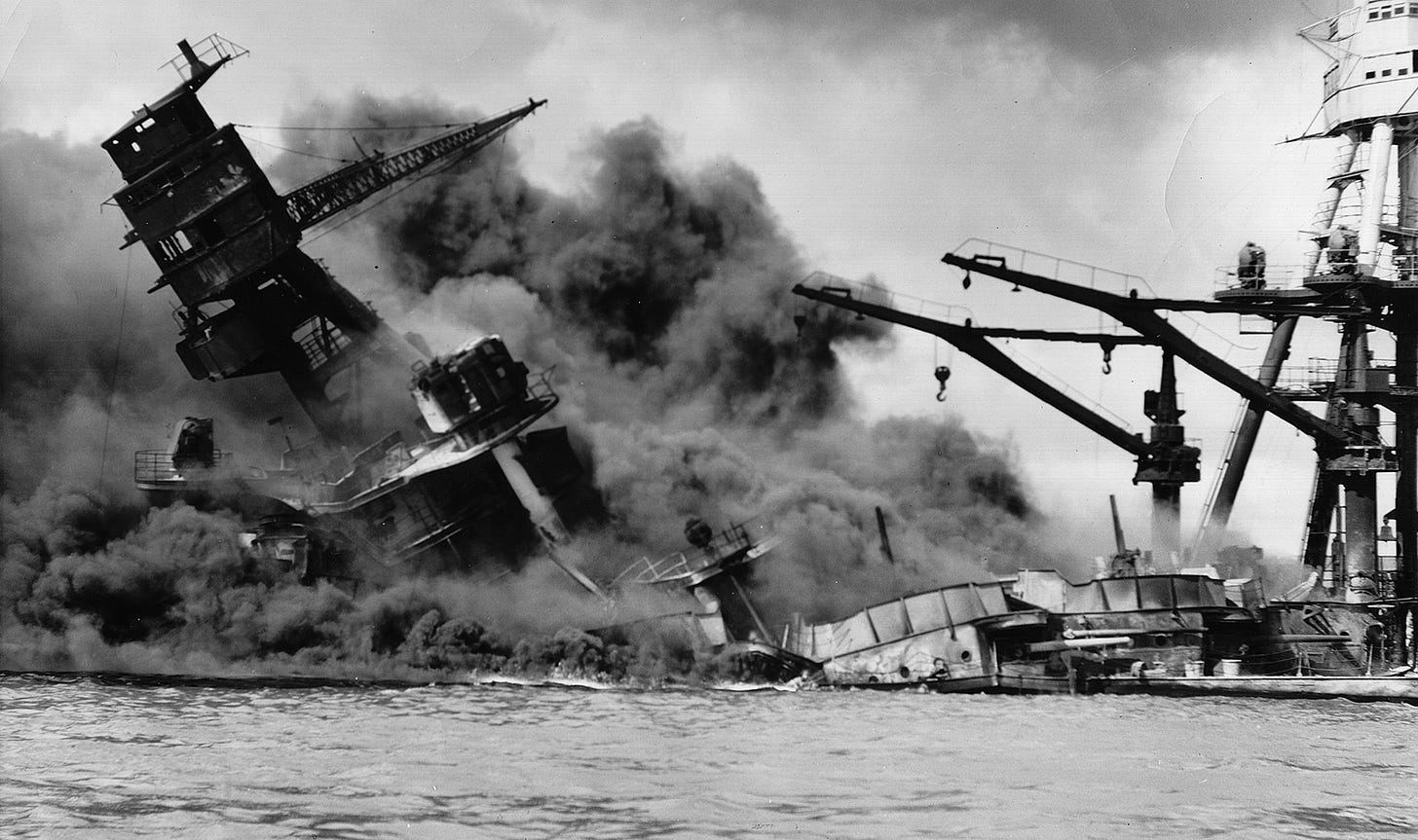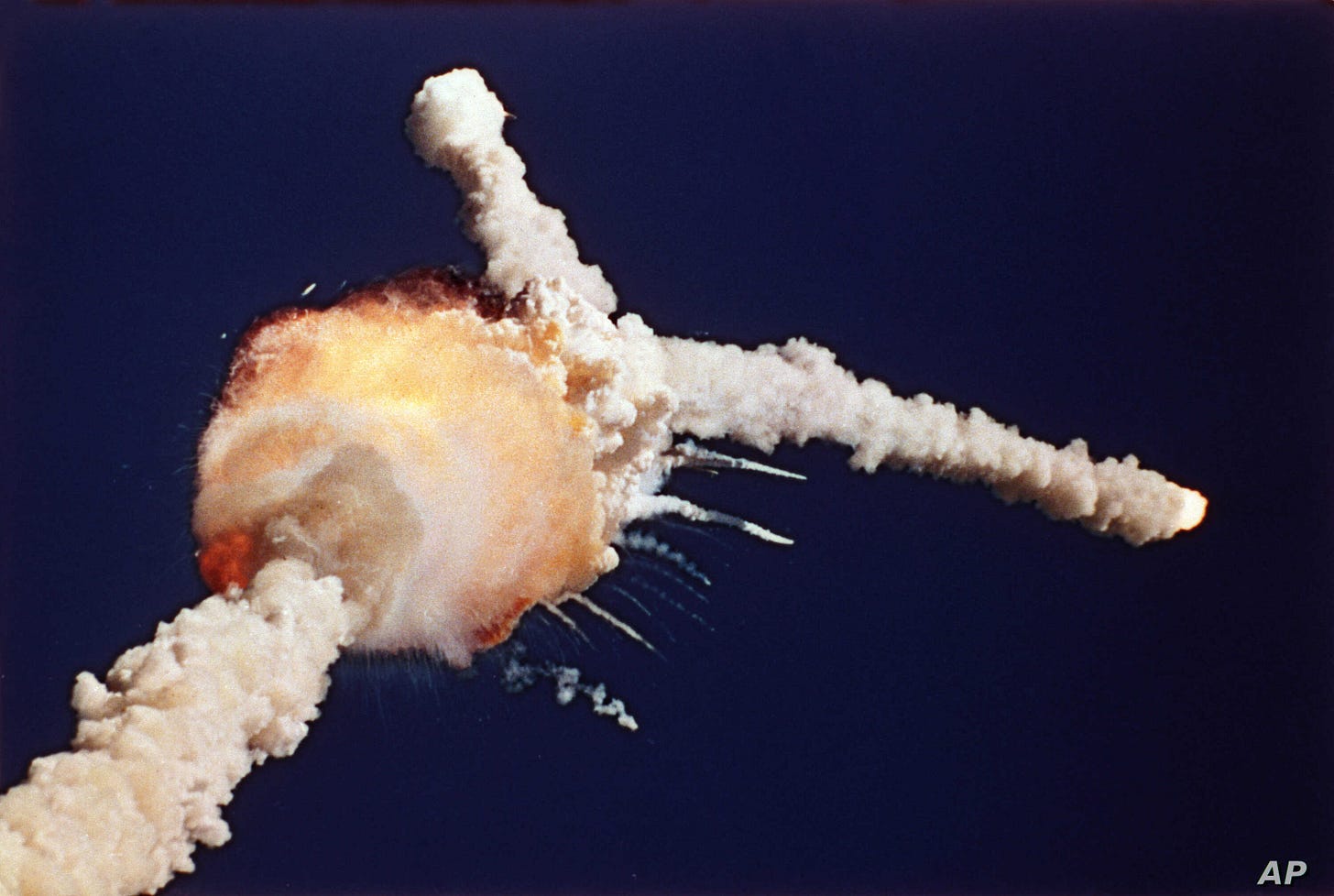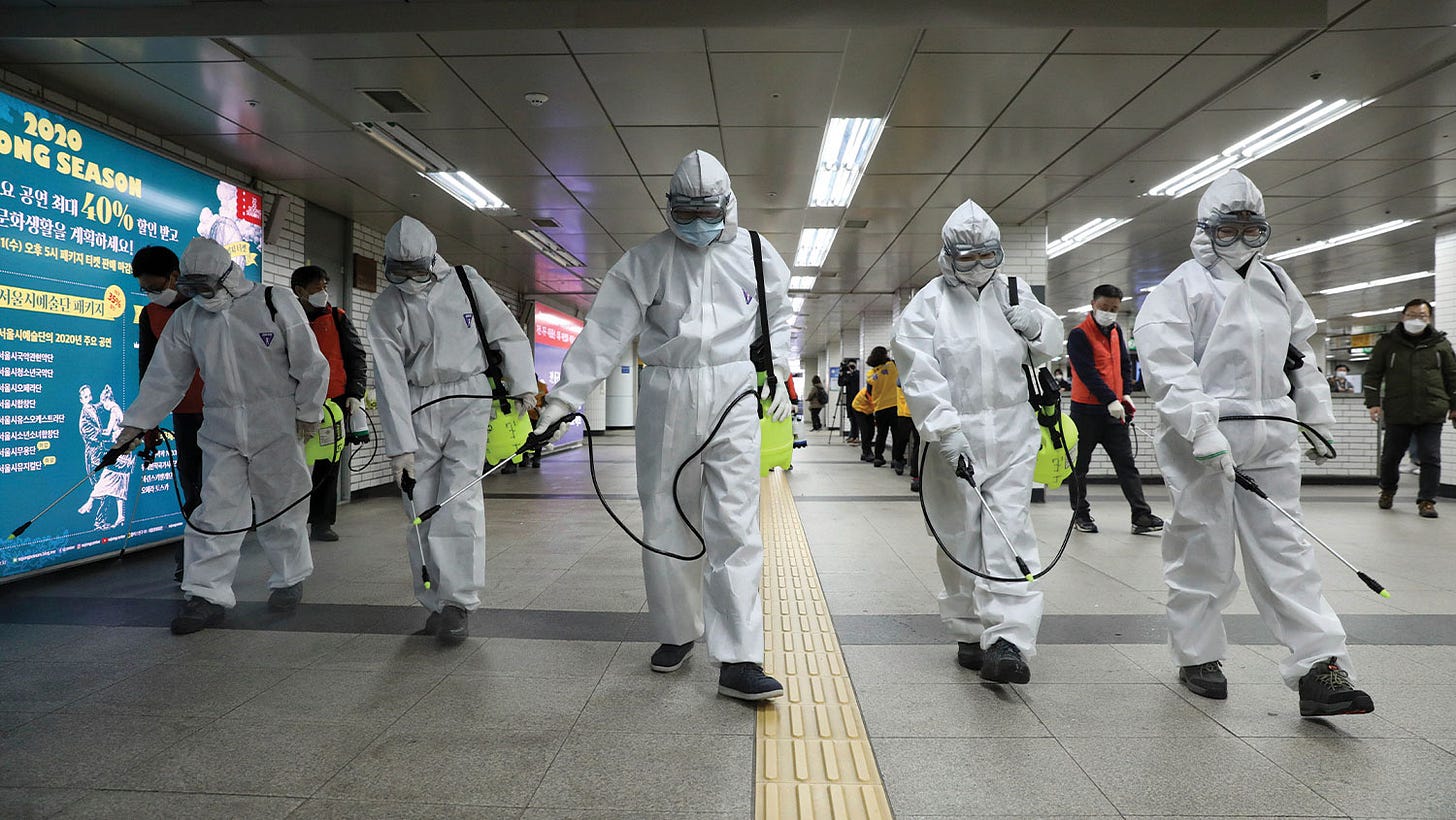(I have ruminated on these traumas before--but I have updated my thoughts for 2021, 20 years after 9/11, and added the global Coronavirus pandemic.)
Where were you when?
For our final spring break in 2019 with all our kids still living at home, we went to NYC including the 9/11 memorial. I had been but the family had not. We also visited Shanksville, Pennsylvania, where flight 93 crashed on 9/11. I highly recommend going out of your way to see that memorial--so meaningful. On a previous vacation to DC, the kids also got to see the Pentagon memorial from 9/11, so they were able to see all three.
Our oldest was just a baby on 9/11, the other two yet to be born. I have ruminated about how my kids encounter these events as American history, whereas for me it is a direct experience. Around the same time that we went to Shanksville and NYC’s Ground Zero, I was reading Robert Caro’s 4th volume of his huge LBJ biographies, and he outlined the Kennedy assassination behind the scenes in incredible detail. I read that all as history, but my parent’s generation remember it happening in real-time.
These are all the “where were you when you heard….” events for most Americans (and for some of them, they are really not isolated to America at all and are world events, each having distinct world-impacting implications or even victims.
It has made me think that perhaps generations are not defined by dates after all. This might explain why we are somewhat skeptical of “generation talk” defined by such rigid dates. Perhaps generations are instead hard to define demographics that are indelibly marked as they came of age during shocking events and their aftermath, such as…
Gen 1 – Pearl Harbor
Gen 2 – Kennedy Assassination
Gen 3 – Challenger Space Shuttle Explosion
Gen 4 – 9/11 Terrorist Attacks
Gen 5 - Coronavirus Pandemic (added in this 2021 update)
Each of these, and perhaps others you would suggest, are those “where were you when you heard” types of traumatic events.
Pearl Harbor
Those who remember this “day that will live in infamy” must inexplicably tie them to the fact that because of it America would join WW2–-one of the most consequential changes in policy in all of world history.
The Takeaway: the death of isolationism & peace, and the death of so many in battle, and the change of the global power landscape. How do you think this marked that generation in contrast to these others?
Kennedy Assassination
The first truly televised tragedy. All TV stations canceled all programming for 4 days and had wall-to-wall coverage of it without commercials. Americans watched that coverage for an average total of more than 30 hours that weekend! Perhaps an age of innocence died that day–certainly with all that followed, LBJ as president in the Vietnam years, then Nixon and the distrust of the government.
The Takeaway: the death of hope perhaps. How do you think this marked that generation in contrast to these others?
Challenger Space Shuttle Explosion
What made this unique as an experience for a generation in so many ways is the schoolteacher, Christa McAuliffe, who was on the shuttle which caused so many (including my own schoolteacher) to show this LIVE in class–so many, if not most American schoolchildren experienced this tragedy with their friends in a school-room, without their family close.
The Takeway: I’m not entirely sure what this signified for my generation, as this one hits home for me. I wonder if this marked our generation’s marked despair in comparison to the ones before--a sense that the American dream was declining with us? How do you think this marked that generation in contrast to these others?
9/11 Terrorist Attacks
Much more recent to our memories is this and the subsequent wars on terror. I was stunned how tears came to my eyes at the Flight 93 memorial to think of these everyday flight commuters who courageously called family, then had a meeting, then a vote (how very democratic of them to vote at a time like that), and then fought back against the terrorists with utensils, boiling water, and broken plates.
The Takeaway: Many have speculated how these attacks shaped those who came of age during it (those significantly younger than me, for instance). Most of all I believe they are shaped by a feeling of being unsafe in ordinary life. How do you think this marked that generation in contrast to these others?
The photo above of my children looking out on the field where Flight 93 crashed made me consider the fact that my three children are really not a part of any of the above generations. My oldest was just 10 years old when Osama Bin Laden was killed by Navy Seals. He doesn’t even remember that part.
As I considered these traumas of the generations a few years ago, I wrote the below:
A sobering thought to me is that the traumatic event, the “where were you when you heard” tragedy that they will always remember, is still in the future for my kids and their generation. Praying today that they are ready for it, my time raising them is nearly over..
Part of me hopes their generation rises to the challenge in ways previous generations did–there are stories of courage, faith, and dignity in those tragedies for sure. May they follow in those footsteps. Part of me hopes they learn lessons from our history, and that they do things differently than we did. May they find new and better paths as well. For that is the hope of parenting, is it not? Parents don’t want their kids to just be as good as they are, but that they’ll be better.
Of course, just a year after I wrote this I think we now know exactly what the trauma of their generation became….
Coronavirus Pandemic
This trauma, mirroring other trends of their time, was truly global. Every country, every business, every school, and every child coming of age worldwide knows about and has been impacted by the pandemic. Unlike the theoretical or symbolic danger of other traumas, there is a real physical risk for everyone with such a pandemic, and those coming of age are indelibly marked by this. Especially at the start, when everything was shut down entirely, a traumatic and somewhat apocalyptic-feeling experience was ubiquitous.
The Takeaway: We don’t yet know how this pandemic has entirely shaped the generation coming of age within it. I do see some glimmers of hope that the coming trauma prayer I prayed above a few years ago, is being answered. How do you think this marked that generation in contrast to these others? Let’s discuss that or other thoughts you have on these traumas or others I left out by leaving a comment.
I insert by way of epilogue this picture of my family at Ellis Island, where so many millions of American stories began. When there, I thought of all my close friends who are first-generation immigrants raising the next young Americans, younger than my own. I was also thinking of raising kids in an environment where they can become better than I am. Perhaps that’s all the new world dream ever was in the first place.
May they all overcome the traumas of their generations, as before, and make a difference in the world to come.











I wonder if the Covid crisis will be experienced differently than the other “where were you” events because there is a real lack of unity, even acceptance, of what is happening. Unless your family was affected by the illness, so many folks here in northern Indiana, are still in denial as our low vaccination stats reveal. While Covid is truly global in nature, it did not unify our country like those other tragedies did. If you viewed the Covid crises on Fox News instead of MSNBC, you will come away with a completely different experience. The other tragedies shared basic facts that were never really in dispute. This was a very effective lens to view real-life events as they turn into history. Thank you.
Thanks David, an articulation of cyclical tenure of events, for it will recapitulate, it will somehow happen in many generations to come…”where were you…” as an inquiry refreshes the heart, even the cold, naive person who doesnt care.